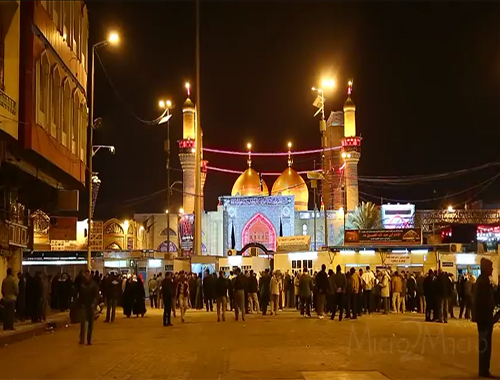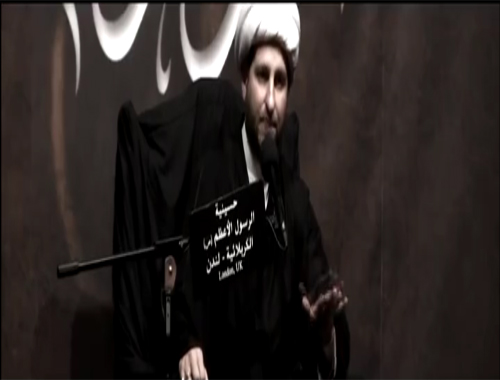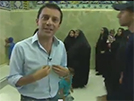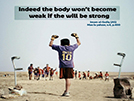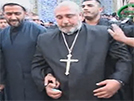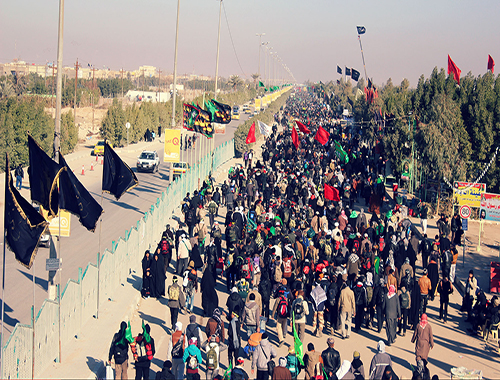
There is no doubt that the Holy Qur’an is not a book about natural sciences, medicine, psychology or mathematical studies.
The Holy Qur’an is a book of guidance and one which builds a human being. It mentions whatever is necessary for one to know.
We should not expect that the Holy Qur’an be an encyclopedia about the various sciences. We should seek the light of faith and guidance, piety and purity, humanness and ethics, order and law from the Holy Qur’an and it contains all of these.
But sometimes in order to reach this goal, the Holy Qur’an indicates some of the natural sciences and the secrets of creation, in particular, in its lessons on unity; it removes the veil over the secrets of the world of creation and it discloses facts which were unknown to the scholars of that era.
This expression of the Qur’an forms a complex which we call the intellectual miracles of the Qur’an. Here we will indicate some of the intellectual miracles of the Holy Qur’an.
The Holy Qur’an and the Law of Attraction
Before Newton, no one had discovered the law of gravity in a complete way.
It is famous that while Newton was sitting under a tree, and an apple fell from the tree, he began to think about the reason and said to himself, “What energy is this which attracts the apple to itself? Why did it not go up to heaven?” After many years of study, he discovered the law of gravity.
In the discovery of this law, it was proven where the order of the stars comes from, why this earth moves around the sun and why they do not fall into each other. What power is this which keeps them in their own orbit, and they do not move this way or that.
Yes. Newton discovered that the orbiting of a body causes it to flee from the center and the law of gravity causes it to return to the center and as long as these two are in balance, that is, the distance between these two bodies brings about a gravity to create a fleeing from the center and a gravity to pull it back to the center, this attraction and repulsion permits it to remain continuously in its orbit. But the Holy Qur’an, 1000 years before this event, says:
“God is He Who raised the heaven without any pillars that you can see; is firmly established on the throne. He has subjected the sun and the moon (to His Law)! Each one runs (its course) for a term appointed. He regulates all affairs, explaining the sign in detail that you may believe with certainty in the meeting with your Lord.” (13:2)
In a Tradition from Imam Reza (A.S) about this verse, he says, “Does God not say a pillar without a pillar being seen?
The narrator says that in response to the Imam, I said, “Yes.”
He said, “Thus a pillar exists but you do not see it.”
Can an analogy simpler than this be found to express this to simple Arab people?
In a tradition of Imam Ali (A.S) we read: “These stars which are in the heavens are cities like cities on earth and every city is connected to another city by a ray of light.”
Scholars today, among the astronomers, believe that there are millions of stars which are inhabited with living creatures but the details of this are still not known.
The Discovery of the Orbit of the Earth around the Sun
It is famous that the first person who discovered that the earth moves around the sun was Galileo, who lived approximately four centuries before and before that, the Egyptian scholar, Ptolemy, had said, “The earth is the center of the universe and everything revolves around it.”
Galileo was reprimanded by the Catholic Church for his discovery and his denial of this discovery saved his life but finally other scholars followed up his discovery and today it is a certain scientific fact which has been proved by space flights.
At any rate, the opinion of Ptolemy lasted for 1500 years and it influenced the thoughts of the scholars during those years and, at the time of the descent of the Holy Qur’an, no one had the courage to speak against this view.
But when we turn to the Holy Qur’an, we see:
“You see the mountains and think them firmly fixed, but they shall pass away as the clouds pass away…” (27:88)
The Qur’an speaks very clearly about the movement of the mountains whereas we see them as immovable and the analogy of their movement with that of clouds is both an indication of calmness and quietude.
If we see that instead of the movement of the earth, the movement of the mountains is mentioned, this is so that the truth of the matter be made known because it is clear that the mountains, without the earth, have no motion and the movement of them is exactly like the movement of the earth, either around itself, or around the sun or both.
Now think that at a time when all of the scholars of the world and the masses of the people thought that the earth was motionless, and believed that all of the stars and planets moved around it, the direct confrontation of this idea and the mention of the movement of the earth is a scientific miracle!
And this from a person who had never studied and who, in general, arose from an area where there were no teachers and which was considered to be very backward from the point of view of science and culture.
Is this not a proof of the Truth of this Book?
Taken from: By Islam
 Imam Reza (A.S) - Islam Guidance
Imam Reza (A.S) - Islam Guidance